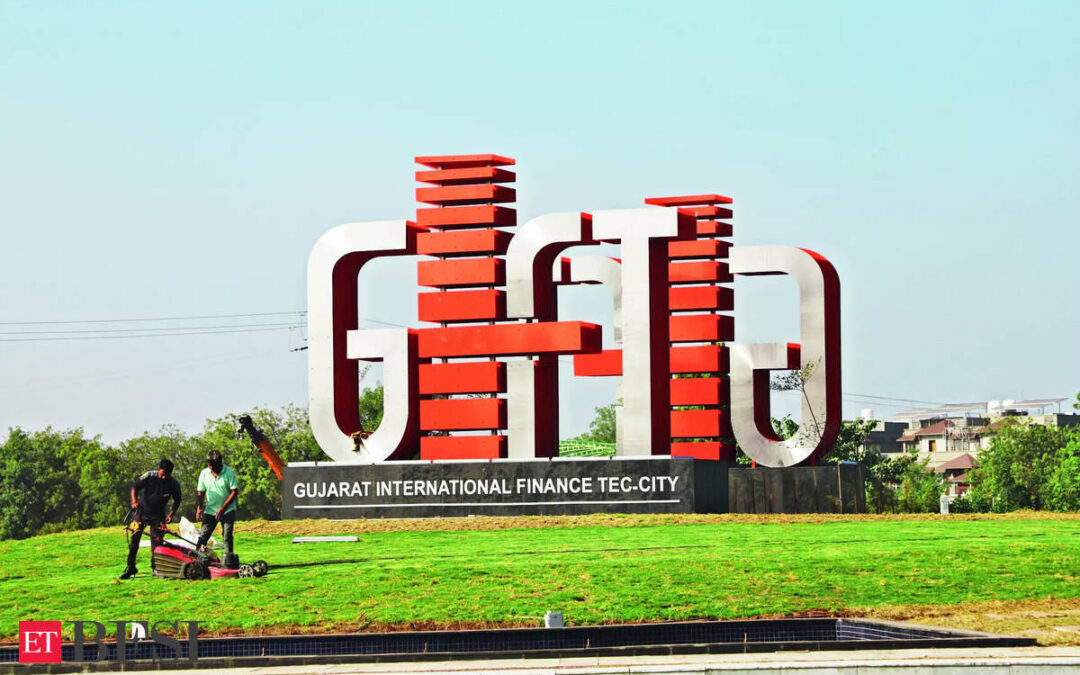Mumbai: At a time when trade in offshore interest rate derivatives in Gujarat International Finance Tec-City (GIFT City) is gaining momentum, the International Financial Services Centres Authority is working on a proposal to let non-bank financial players set up shop as risk aggregators for small customers, the head of the regulatory body told ET.
“One idea that is currently under examination is permitting non-banks to set up as risk aggregators, who would create a market for small customers (whom banks would not generally be on board as a counterparty) to undertake FX transactions and after aggregating such volumes set the same off with a bank on a net basis,” said K Rajaraman, chairperson of IFSCA.
With Indian bonds set to be included in global bond indices soon, interest in offshore interest rate derivatives is likely to increase as investors look to manage their interest rate risk exposures, he said.
Following an amendment to the Securities Contracts (Regulation) Act, which enabled offshore derivative instruments (ODIs) to be provided out of the IFSC, transactions have started to pick up, Rajaraman said.
“Transactions are already starting to happen – ODIs worth $311 million have been issued by IBUs till April 2024. A number of banks present in IFSC have obtained or are in the process of obtaining FPI licences for acting as market makers for the ODIs,” he said.
The IFSCA head pointed out that the market for taking exposure to Indian securities for global clients exists completely out of Indian borders and was primarily based out of Paris and Singapore due to double taxation avoidance agreements. “Bringing a substantial portion of the market to IFSC is in sync with the logic for setting up the IFSC i.e. bring offshore to onshore,” he said.
FX OPERATIONS
Rajaraman said that steps taken by the IFSCA to onshore the non-deliverable forwards (NDF) currency market and support an active futures and options market were bearing fruit. In June 2020, the Reserve Bank of India permitted domestic and foreign banks with branches in the IFSC to participate in the NDF market, which is dominated by global banks based out of London and Singapore.
“IFSC banks currently trade NDF amounting to nearly $12-15 billion on a monthly basis, which is no mean feat given that Indian banks are late entrants to the market,” he said.
Speaking on measures to attract more retail participation in the Gujarat-based hub, Rajaraman said that a couple of domestic payment service providers had applied to the IFSCA to start operations following enabling regulations for such players by the IFSCA.
“We expect such players to come and provide international payment services from business to consumer etc out of GIFT City. Because there will be a lot of retail clients who are investing out of GIFT City,” he said.
ESG PUSH
In the backdrop of India’s net-zero commitments, the IFSCA was pushing for the adoption of more sustainable models of financing, Rajaraman said, adding that banks in the hub had reached around $700 million outstanding in terms of green credit.
“Simultaneously, we are nudging the alternate investment fund industry to come out with green, climate and sustainable finance AIFs. We expect more fund managers to launch AIF funds, given the appetite of international investors in supporting green and sustainable finance,” he said.









